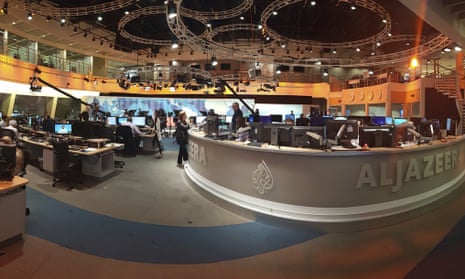The demand by Saudi Arabia that al‑Jazeera be closed is deeply ironic as it was unwittingly responsible for the TV channel’s original very successful launch (Saudis demand Qatar shut down al-Jazeera, 24 June). I was managing editor of the BBC Arabic TV channel in the mid-1990s. The Saudis objected so strongly to our output that they shut us down by taking us off the satellite that they owned.
At around the same time, Qatar was trying to get al-Jazeera off the ground, but with little success – chiefly because they could not get the right staff. With the sudden closure of the BBC channel, they had the pick of more than 150 talented BBC-trained Arab presenters, writers, producers and technicians. So, in November 1996, the channel went on the air, staffed chiefly by ex-BBC people who had taken with them the corporation’s ethos of balance, fairness and honesty.
I have no doubt that if the Saudis had not crushed the BBC channel (not restored by the corporation until 2008), Al Jazeera would have struggled to become the political and social force that it so quickly did.
Ian Richardson
London
The ultimatum to Qatar by Saudi Arabia and its allies is astonishingly reminiscent of the Austrian ultimatum to Serbia in 1914. The demand for the suppression of al-Jazeera, for instance, could be a deliberate update of the Austrian demand that Serbia suppress all publications that Austria declared hostile. It was transparent, and openly admitted among its initiators, that the Austrian ultimatum was deliberately intended to be rejected.
Saudi Arabia is threatening Qatar despite – or because of – the knowledge that military action might draw in Iran. It certainly looks like a decision to force a war with Tehran, presumably in the belief that the US would feel obliged to join in on its side. It was previously restrained by Barack Obama, but evidently expects something different from Donald Trump. One wonders what Trump said to them on his recent visit to Saudi Arabia.
Roger Schafir
London
Join the debate – email guardian.letters@theguardian.com
